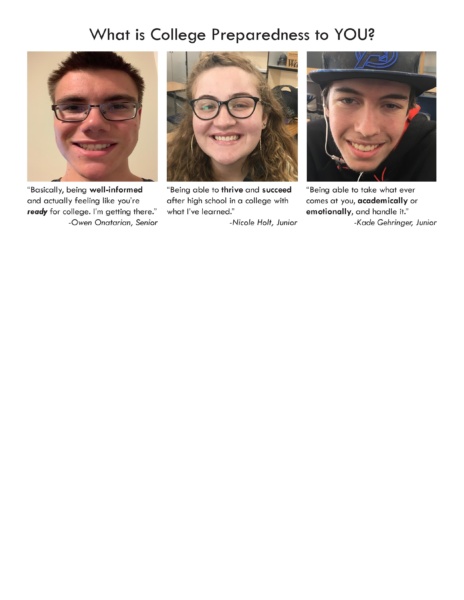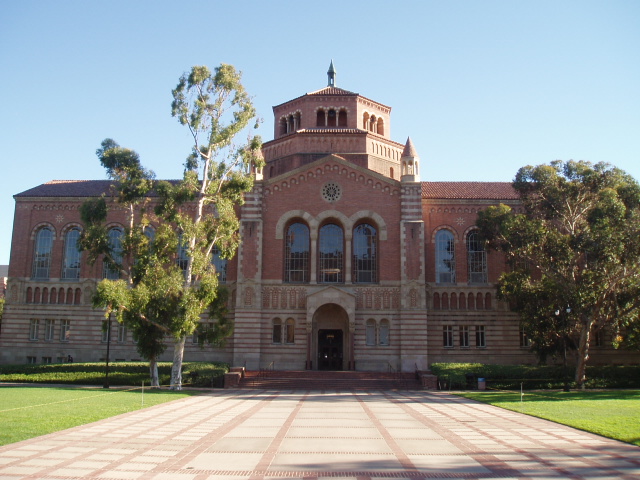College preparedness falls below district average
PHOTO: Julie Clayton is available to assist students with topics including scholarship options, financial aid information, job and volunteering opportunities, and much more in the Career Center during its office hours Monday through Friday from 8:30 am to 4:00 pm.
By Mia Croff,
BlueDevilHUB.com Staff–
A girl peers timidly into the Career Center. Her eyes scan the room as she twiddles her fingers against the straps of her backpack. She is instantly greeted by Julie Clayton’s welcoming smile, and her nervousness fades as she returns the gesture.
The Career Center, ran by Clayton, along with the Academic Center and counseling office, are available on campus to ensure students have access to additional help with both academics and planning for the future.
Despite these available resources, the Youth Truth Survey revealed Davis High students aren’t feeling as prepared for college compared to other high schools within the Davis Joint Unified School District.
On this year’s Youth Truth Survey, DHS scored a 3.54 out of a possible 5 (with one being strong agreement and five being strong disagreement) regarding the statement: “My school has helped me develop the skills and knowledge I will need for college level classes” while the district average was on the verge of a 4.
This means that DHS students are leaning more towards a response of neutrality compared to the rest of the district being in agreement to this statement.
“It is peculiar,” DHS counselor Ann Murao said. “But these scores are all based on the perspective of the students, not a lack of assistance.”
Murao described how DHS is a very academically rigorous school with extensive AP/Honors options and very high expectations for academic achievement. Students have the tendency to take full advantage of the variety of AP/Honors classes.
“There is always a push [for students] to do more even if it’s past their limit,” Murao said.
DJUSD Associate Superintendent of Instructional Services Rody Boonchuoy describes DHS as a “culture of high pressure, high stress, [that] wants to maintain rigorous curriculum.” Davis’ “legacy” of acceptance into the most prestigious colleges pressures students to strive for acceptance into the best UCs.
In the 2018-2019 school year, Boonchuay and a colleague held focus groups with sophomore and senior students during CAASPP testing in the spring. During these groups, one of the questions asked was, “How would you describe your school experience in one word?”
“The top two responses were ‘stressful’ and ‘competitive’,” said Boonchuoy. “The other top responses weren’t as nice.”
Junior Nicole Holt strongly feels the effect of the competitive atmosphere on campus.
“I feel like I’m not prepared because I talk to people and they are doing so much more than me and I’m already stressed!” Holt said.
Although an AP/Honors student, Holt still feels pressured to push herself so she receives “perfect grades”. She is also an active member in her extracurricular activities including LINK, Academic Decathlon, and Women in STEM.
“I feel like I’m not doing enough if I have a calm, free day,” Holt said.
However, Holt regularly takes advantage of school provided resources. She feels as though they are useful and relies on “the extra leg of support” whenever she needs a little help with school work or advice from her counselor.
Senior Owen Onatanian shares Holt’s feelings of unpreparedness; however, it is due to different reasons. With a GPA of 3.7, Onatanian is a UC Davis hopeful but doubts his chances of acceptance.
“I’m just me and thousands of other crazy smart, better off people from all over [who] want the same spot I do,” Onatanian said.
Unlike Holt, Onatanian has never seeked assistance from school resources.
“Yea, that’s my bad,” Onatanian said. “Probably would have been nice when I was stressing over my pile of apps.”
Despite many students stressing over their performance and questioning their abilities, many are thriving using DHS resources and feel prepared to enter college.
Junior Kade Gehringer is “cruising through high school” with a solid plan for post graduation and a desire to pursue a career in computer sciences.
Gehringer attended the Aspire to Inspire program, which took place over the course of several weeks on Wednesday afternoons after school in October. During these meetings, he was able to learn about college life from actual college students, receive advice, and create an outline for his own college plan.
“It was an awesome experience.” Gehringer said. “10/10 would do again.”
In order to encourage students to take full advantage of campus resources and spread more of Gehringer’s confidence among the student body, Clayton works relentlessly to “get the word out” to students. Despite the norm for high academic expectations on campus, Clayton still finds the stress, competition and lack of self confidence “hard to hear.”
“There are so many options a student can pursue other than going straight to a UC,” Clayton said. “And no matter what you pursue you will be successful in your own way. Even at a community college.”
Boonchuoy says there’s still room for improvement at DHS. The school, Boonchuoy said, needs to “evolve [its ideals in order] to create a healthy, balanced educational experience.”
“Your value and worth are not defined by what school you go to,” Boonchuoy said. “You can never completely plan out your life, so you have to open yourself up to new experiences and find the right fit for you.”




